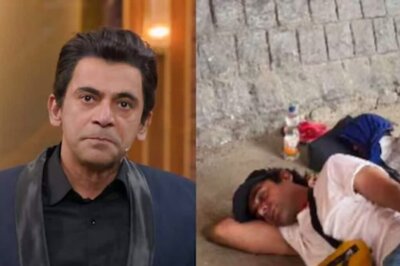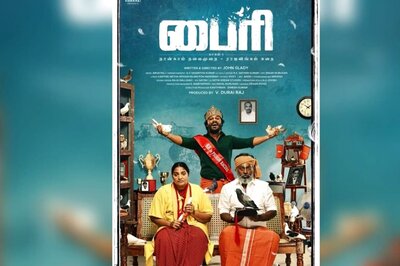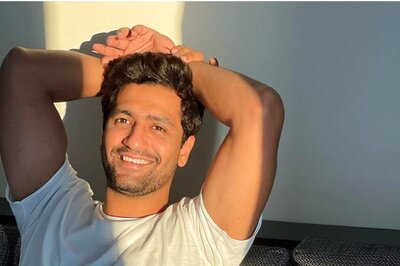
views
An experiment started in the late 1940s when India emerged as the largest living democracy in the world. Certain quarters in the West started casting aspersions and expressing doubts about the fate of this humongous experiment. However, the experiment over the last 75 years has been largely successful with routinely held free and fair elections. It has also been largely free from instability or political warfare.
Yet, there are a few aberrations. Two former prime ministers of the country — Indira Gandhi and Rajiv Gandhi — got assassinated in the last century. The state of Punjab too has had a history of political violence and assassinations. Former Punjab chief minister Beant Singh too had been assassinated in the early 1990s. So, it isn’t a matter of surprise that there was a nationwide sense of shock following the security breach in Prime Minister Narendra Modi’s cavalcade near Ferozepur, Punjab, earlier this year. And now, the report of an independent Supreme Court panel into the incident has disclosed even more shocking details.
It isn’t as if the incident didn’t already reek of sheer negligence and politicisation of an issue like the prime minister’s security. There was a sheer disregard of convention as the state’s chief minister and the Director General of Police (DGP) were not present to receive the prime minister. On top of it, the sight of cops having tea with hundreds of protesters who had blocked the prime minister’s convoy didn’t go down well with the shaken national conscience over the security breach. The prime minister’s convoy remained stuck on a flyover for a full 20 minutes and that too close to the India-Pakistan border.
The issue had led to exchange of heated political remarks with the BJP alleging that the Congress government in power in Punjab at that time had shown utter disregard for the prime minister’s security. On the other hand, the state Congress government seemed rather dismissive of the entire controversy and suggested that it was a mere coincidence.
However, the report submitted by the Supreme Court-appointed Retired Justice Indu Malhotra committee has cleared the air. It concluded that the Ferozepur SSP had failed to execute his duty of ensuring the prime minister’s security despite having necessary information two hours in advance. The Supreme Court bench headed by Chief Justice NV Ramana too held Harmandeep Singh Hans, Ferozepur SSP, responsible for not acting in time to ensure the prime minister’s security. The apex court bench also stated that there were sufficient forces at the SSP’s disposal and key inputs about the presence of hostile groups on the route taken by PM Modi.
Notwithstanding all political controversies in the past, there are two conclusions to be drawn about the incident: There was a security breach; and, there was actually an element of risk that warranted diligent action by state authorities. It is also a reasonable conclusion that the state authorities did not act with due diligence and certainly failed to look after the prime minister’s safety.
Whether the lapse was incidental or an act of callousness owing to the fact that the prime minister didn’t belong to the party in government in the state is something that remains unknown. In either case, the incident must serve as a warning for security agencies and the central government when it comes to the protection of the country’s top leader. And there are several lessons that we actually need to learn.
First and foremost, the country may need a different form of security arrangement as far as movement of VVIPs close to an International Border is concerned. With Pakistan-sponsored terror elements using drones and other technologies to cause instability in the bordering areas, any VVIP movement near the International Border or the Line of Control (LoC) would always remain a matter of concern. So, the authorities need to be extra-cautious and vigilant about the possibility of untoward incidents.
Second, the security breach incident and the callousness on display dismisses the notion that PM’s security is a non-political matter. With the sheer polarisation of Indian politics, it is quite possible that non-BJP state governments don’t take PM Modi’s security and safety seriously. This is something that the authorities will have to deal with.
The Special Protection Group (SPG) has maintained an unblemished record since its establishment. However, the SPG and other agencies concerning the PM’s security may now have to adapt themselves to the changing circumstances. If the police forces fail to sanitise the route that the prime minister’s convoy is supposed to take, the central agencies can at least pre-empt such a contingency. The central authorities cannot go out of their way to clear the roads and remain dependent on the state government which is quite reasonable. However, they must keep an eye on the obstructions on the route and avoid moving the cavalcade into a risky zone.
And finally, the government ought to take some harsh steps against those responsible in terms of the latest report submitted to the apex court. An example should be set for others to avoid any lapse in the top leader’s security in the future.
While any attempt by the central authorities to go the extra mile for ensuring PM Modi’s safety when he travels to Opposition-ruled states could cause greater political friction, it is absolutely necessary to ensure that a Ferozepur security breach-like incident doesn’t happen again. The main lesson to be taken is that the prime minister’s security is now largely a responsibility of central authorities in non-BJP states.
Read all the Latest Opinion News and Breaking News here




















Comments
0 comment